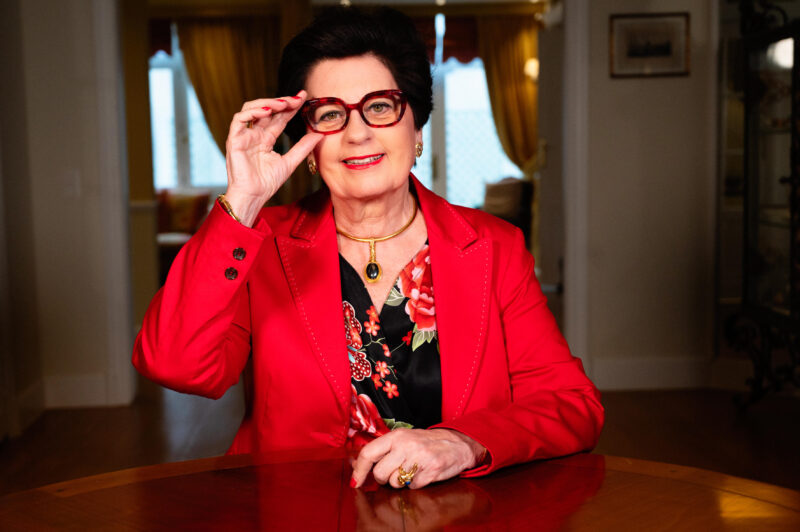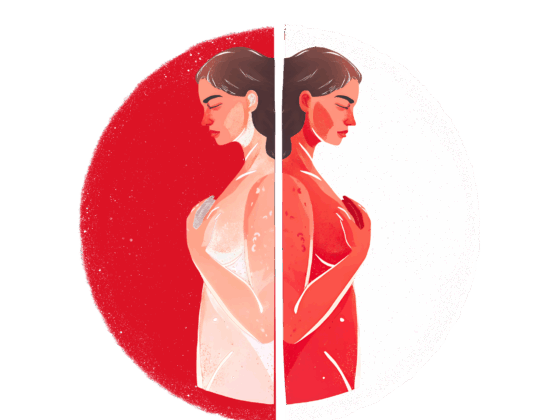It was a quiet public holiday in Brussels. The weather was pleasant and sunny, most offices were closed, and the streets were unusually serene as people paused from their routines. But not Baroness Françoise Meunier. She welcomed me into her elegant home, a space that balances warmth with quiet intellect. The room was full of family photographs, especially of her grandchildren, and mementos from a life lived on the frontlines of science and policy. Even on a day of national rest, she spoke with urgency, reflection, and unwavering focus. Work, after all, has never been something she puts aside. Not when there is still so much left to change.
Baroness Meunier, former Director-General of the European Organisation for Research and Treatment of Cancer (EORTC), is not merely a figure of scientific authority. Her journey through medicine, spanning over five decades, is a personal mission deeply rooted in childhood, shaped by admiration, love, grief, and a relentless drive for progress.
Roots of Resilience
The foundation of Françoise Meunier’s extraordinary journey begins in the Belgian countryside, far from Brussels, where her earliest influences weren’t professors but her own parents.
“My father was a surgeon and truly loved life, he had a real joy for living. His patients adored him, and that always struck me. Often, just seeing him open the door made them feel better. His smile, his presence, it was deeply reassuring. He had a gift for making people feel safe.”
It wasn’t ambition that first drew Dr. Meunier to medicine, it was a model of presence, empathy, and quiet dedication. “He gave me a joy for life, a sense of kindness and openness, and also a desire to go to medical school.”
If her father embodied joy and compassion, her mother instilled something else entirely: discipline and the strength to persist.
“My mother was a very caring person, but she taught me the need to be strong. She gave both my brother and me a strong sense of responsibility, the need to work hard and be resilient. That is why I am very dedicated and persistent. I don’t give up unless I am proven to be wrong.”
The Early Days: From Infection to Innovation
During the final years of her medical studies, internships were mandatory. She consistently chose Institut Jules Bordet, “it was just across from my apartment,” she notes with a smile, and everything to do with the atmosphere of inquiry and intellectual curiosity she found there. At that time, announcing a diagnosis of cancer was almost a death sentence. “
Because it was only there that we were daily confronted with clinical trials and clinical research protocols, Professor Tagnon was there, and we were all trained to be curious, to be interested in making progress, in participating in clinical trials, and so on.”
It was at Bordet that she began her early work in infectious diseases, particularly in hematologic cancers. In the early 1970s, leukemia patients weren’t dying from cancer alone; they were succumbing to sepsis, a deadly complication that followed intensive chemotherapy.
The Turning Point: Memorial Sloan Kettering Cancer Center
Françoise Meunier’s path to leadership had taken her across the Atlantic. From the end of 1976 to 1978, she trained at Memorial Sloan Kettering Cancer Center in New York. That experience, she says, was transformative, not only for the skills she acquired in a whole new field, i.e. invasive fungal infections, but for the support she received.
“There were not that many women involved at the time,” she says. “Showing my ID card from Memorial in departmental stores in New York while I was doing some shopping, often, I was told, ‘you are not an MD!”. But I was encouraged by the trust I felt from key opinion leaders in my field. I work very much on admiration, and I admired those experts supporting my research. They trusted me to develop my PhD thesis. That made all the difference.”
In New York, she specialized in fungal infections in cancer patients, a topic almost untouched in Europe in the late 1970s. It would become her signature research area for nearly two decades.
But returning to Europe was, as she describes, “a difficult landing” as for many of us.
“The challenge was to come back and implement the vision and the strategies,” she explains. “You’re in a totally different environment. In the U.S., I had support, staff, and structure. Here, I had to build a research unit, to look also for funding while already cooperating with the Infectious Diseases Group of EORTC. But I succeeded. I managed.”
So, her path, once rooted in bacterial sepsis, eventually turned toward fungal infections in immunocompromised cancer patients. However, it was her transition into leadership at the European Organisation for Research and Treatment of Cancer (EORTC) that would expand her impact from hospital wards to a continental stage.
EORTC: Scaling Science with Strategy and Soul
By 1991, Françoise Meunier had reached a defining milestone in her career. At just 41, she was appointed Director of the EORTC, and in 1995, the first Director General, a role few women in Europe held at the time, especially in medicine.
When she arrived at EORTC headquarters, she was the only medical doctor on staff. And she immediately understood that clinical insight was missing from the internal team. The organization depended on a three-way balance, she explains: the board for strategic direction, the staff for execution, and to provide legal expertise in clinical trial management, data basis and statistical analysis, and the network of investigators spread across Europe who participate in these clinical trials.
“As I used to say, we could have a Rolls-Royce at the headquarters,” she says. “But if it doesn’t fit the needs of the network, we are nowhere. The headquarters cannot do anything without the network. But the network cannot do independent clinical research without a strong and well-equipped central facility fulfilling all the complexity of pan-European clinical research.”
To bridge that disconnect, Dr. Meunier made a bold and practical suggestion to the board: she created new functions for physician-researchers who could serve as liaisons between the network and the staff at the headquarters while also gaining knowledge of clinical trials and becoming excellent investigators in their institutions.
“The staff never saw patients,” she says. “It was difficult for them to understand exactly what it means for patients to participate in a clinical trial. Or what the investigators need, because for them, research is on top of an already full clinical schedule.”
Her leadership style was shaped by clarity, accessibility, and consistency.
“I was always present. I’ve never closed the door of my office,” she says. “They could come in and out, ask questions. I was very approachable. Not in my tour d’ivoire.”
But she was also demanding, of others, and of herself.
“We had to achieve consensus and cohesion,” she says. “And I agree, it’s not easy. But I’m persistent. And I expect effort and persistence from those around me too.”
When asked what drove her staff to follow such an ambitious vision, her answer is clear.
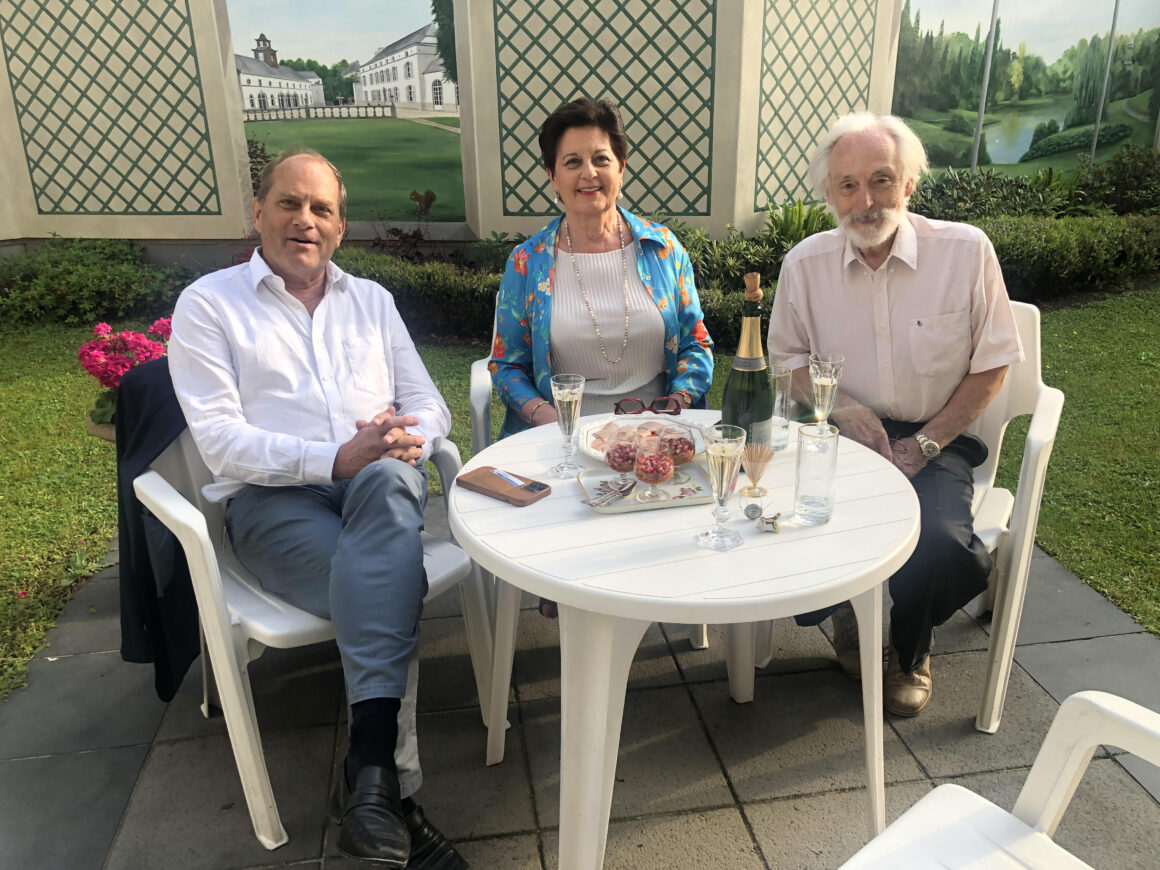
“Enthusiasm. Idealism. Getting things done. Getting results.”
Under Dr. Meunier’s leadership, the EORTC grew from 28 to nearly 200 full-time staff. But she insists that size was never the goal. What mattered was the integrity of the structure, the alignment of mission across cultures and borders, and the belief that independent clinical research could, and should, reshape the future of cancer treatment.
Pride and Purpose: A Career That Shaped European Medicine
For someone who helped redefine clinical cancer research across a continent, Dr. Meunier is remarkably humble when asked about her proudest accomplishments. But once she begins to reflect, her voice carries unmistakable conviction.
“Well, honestly, I am proud of several things,” she begins.
Her first source of pride goes back to her roots in infectious disease. After returning from Memorial Sloan Kettering in the U.S. with advanced training in fungal infections, Dr. Meunier brought that expertise back to Europe and into the infrastructure of the EORTC.
“Within EORTC, there were several disease-oriented groups, the lung group, the breast group, the gastrointestinal group, and so on, as well as a radiotherapy group. At the time, there was also an antimicrobial group, but its focus was limited to bacterial infections for life-threatening sepsis. Given my background, expertise, and experience in developing strategies for prevention and treatment of fungal infections, particularly what I had learned during my time in New York, I requested permission from the board to establish a new group. As a result, I founded the EORTC Invasive Fungal Infections Group to further pursue the work in this emerging field.”
By the late ’80s and early ’90s, bacterial infections were increasingly under control. But patients undergoing aggressive chemotherapy, particularly these patients with hematological malignancies, faced a new threat: invasive fungal infections that spread to the brain, liver, and lungs.
She led that group from 1991 to 1995, but eventually made the difficult decision to step away from the field she had helped pioneer.
“After 20 years dedicated to infectious diseases in oncology, I made the decision to step away from the field. I realized I could no longer be both effective and credible while managing broader responsibilities. When I was appointed Director General in 1995, I decided to fully commit my energy to the EORTC headquarters and its overall mission, leaving behind my work in infectious diseases.”
Her second proudest achievement is less visible but deeply impactful: adapting to the changing legal landscape for academic clinical research in Europe.
“In 2004, the European Commission introduced a directive on clinical trials, which was a real challenge,” she recalls. “It was extremely demanding and didn’t consider the difficulties to implement the requirements for international independent academic research .”
While pharmaceutical companies had the resources to adapt across countries, academic groups like EORTC did not.
“Pharma has offices everywhere. We didn’t, and still don’t. National legal discrepancies and requirements made things even harder.”
She wasn’t alone in the fight; other groups, like EULAR (the European Alliance of Associations for Rheumatology), also pushed back.
“We were very vocal,” she says, her voice still marked by frustration.
After a decade of advocacy, a major breakthrough came.
“From 2004 to 2014, we fought hard. I organised at the Palais of the Academies in Brussels a key conference (“the future of cancer clinical research in Europe “) under the auspices of the Belgian Presidency of the Council of the European Union in September 2010. I believe EORTC played a key role in showing the directive’s flaws. Eventually, the Commission replaced it with an EU regulation, a more harmonized and supportive framework for academic research.”
The process is still long and difficult.
“It took years of running back and forth. I’m no longer involved, but I believe things are better now. It wasn’t easy, but it was mandatory to survive.”
It Opened My Eyes
In 2014, one year before retirement as Director General, Françoise Meunier launched what would become her most personal legacy: advocating for cancer survivors as Director of Special Projects.
“That was my first Survivorship Summit, January 30, 2014,” she recalls. “It opened my eyes.”
After four decades of improving survival rates, she recognized a new battle: life after cancer.
“I fought to help patients survive, and we’ve made real progress. But then survivors told me about the struggles they faced returning to work, school, or getting financial services.” Therefore, I organised 2 other Survivorship Summits, in 2016 and 2018.
One story struck her deeply: a survivor denied access to insurance in order to get a loan and mortgage.
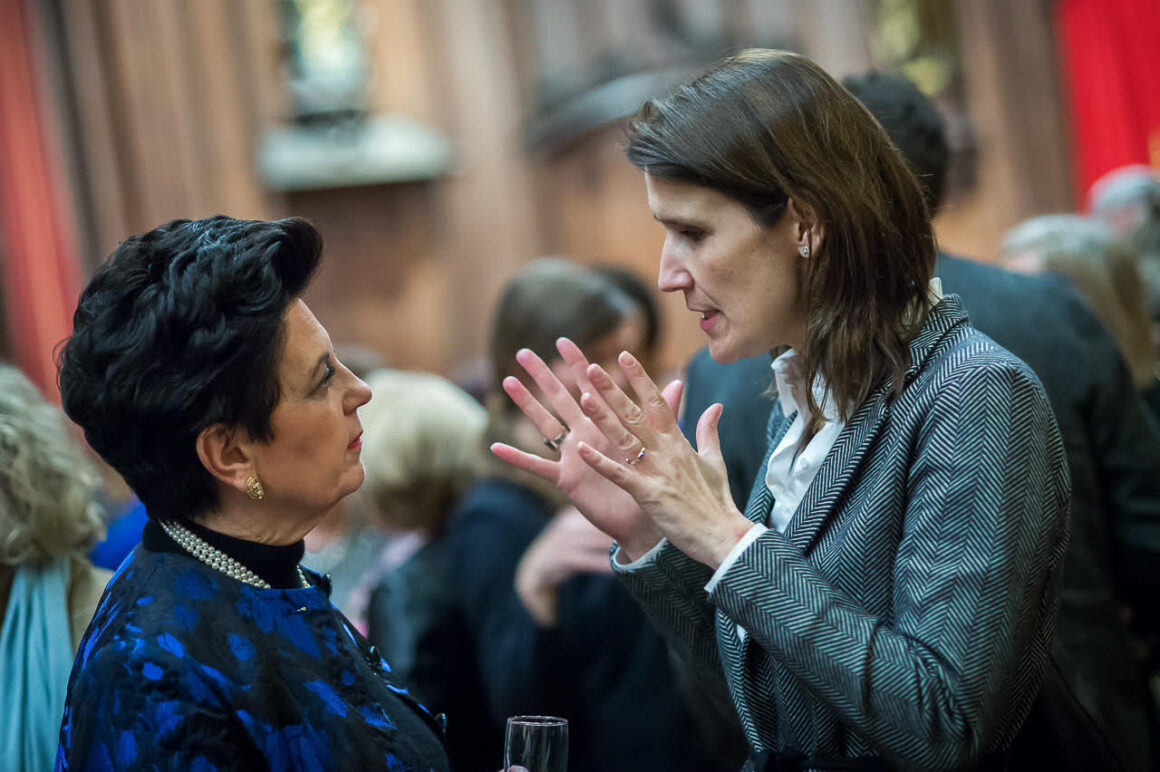
“That’s when I decided to act.” And after leaving EORTC, she launched a Europe-wide initiative to end financial discrimination against cancer survivors.
Cancer Patients Should Not Pay Twice
Her crusade became known as the fight for the Right to Be Forgotten: ensuring survivors aren’t penalized years after recovery.
“Insurers aren’t philanthropists. They ask for medical history, and survivors end up paying high premiums, or are rejected entirely.”
France became her model.
“In 2016, they passed a law limiting this. I thought: if it works in France, it should work across Europe. Cancer knows no borders – why should access to insurance?” It is a matter of human rights and equity.
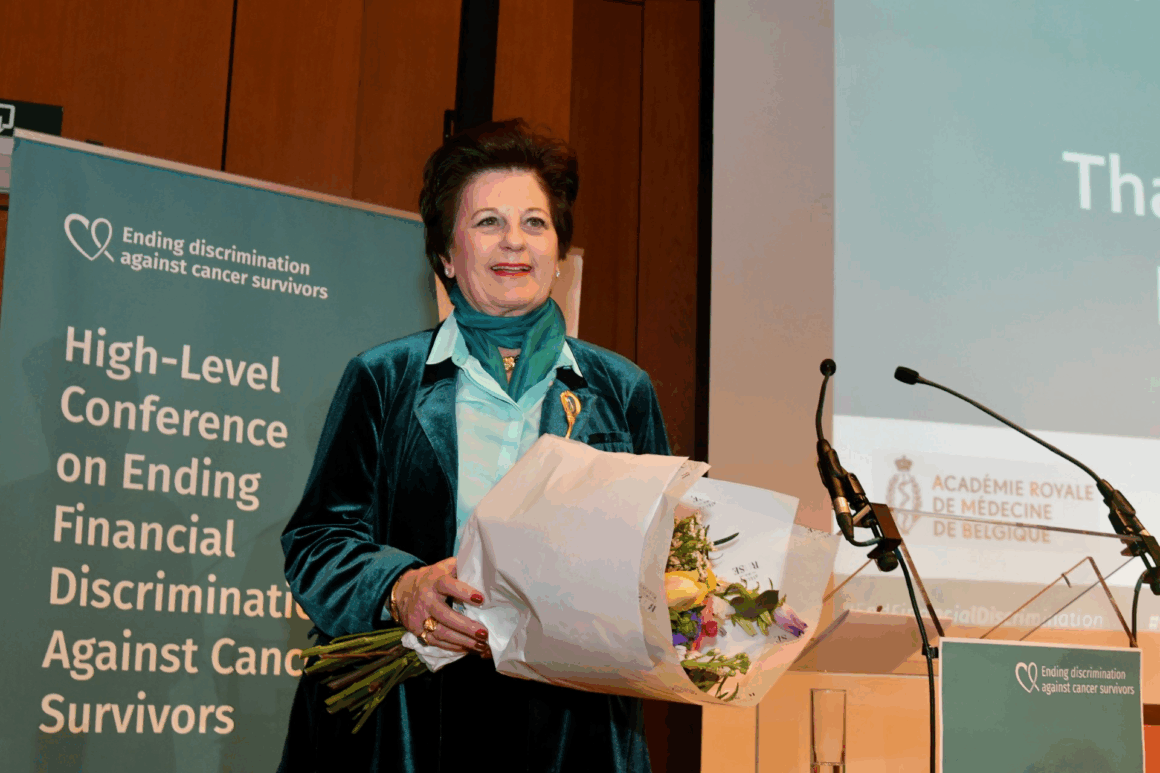
She lobbied hard to embed the principle in Europe’s Beating Cancer Plan and Mission on Cancer.
“It worked. But some countries blocked binding laws, preferring weak ‘codes of conduct.’ I’m firmly against that.”
She’s still pushing, country by country with determination and success.
“Now we have laws in nine EU countries (France, Belgium, the Netherlands, Portugal, Italy, Spain, Romania, Cyprus and Slovenia). But there are still a lot of countries to convince…
France and Belgium proved it works. Both countries went from 10 to five years delays; and now, some insurers even dropped medical questionnaires altogether for some loans, which shows that this legal framework does not jeopardize the financial sustainability of insurance companies.”
The evidence is clear, she says:
“Five years after the end of treatment without relapse should mean no more discrimination. Cancer patients shouldn’t pay twice.” That is the reason why I organised a high-level conference also at the Palais of the Academy on “ending discrimination against cancer survivors “, in February 2024 again under the auspices of the Belgian Presidency of the Council of the EU.
Human Rights, Not Compassion
“This isn’t about compassion,” she says firmly. “It’s about human rights, and it’s in the EU’s competencies. After five years, survivors deserve a fresh start.”
The latest battleground is the EU Consumer Credit Directive, which now includes a delay of up to 15 years.
“Fifteen years is too long. We’re working to bring it down to five.”
The implementation deadline is November 2025, and she’s campaigning hard.
Her method remains what it’s always been: push, persist, and never back down.
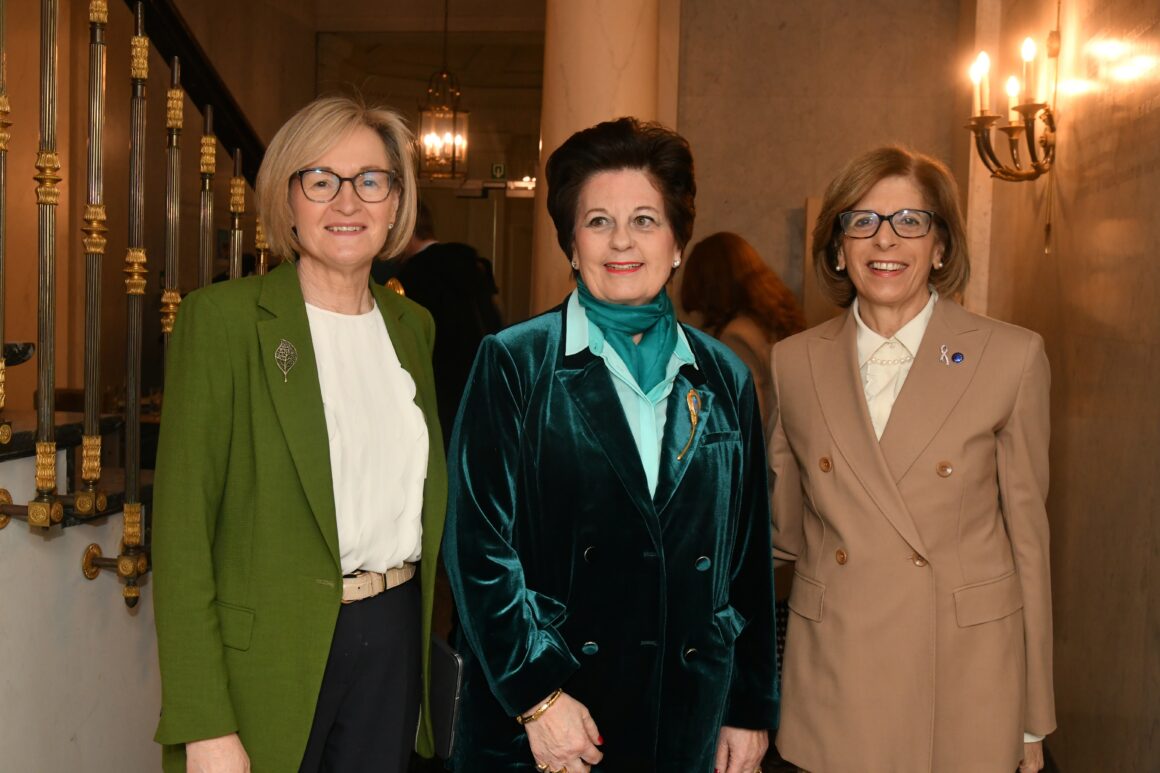
The Patient Who Wasn’t Heard
Dr. Meunier’s commitment to patient dignity began long before her policy work. One moment in medical school, over 50 years ago, still stays with her.
“I was training in a general hospital,” she recalls. “Each morning, we did bedside rounds, in hospital common rooms, students, nurses, assistants, and the head of the department. We’d stop at each patient’s bed to discuss their case.”
One morning, they paused briefly in front of a man with stomach cancer. No one said a word. After barely a minute, they moved on.
“At the next bed, a patient with inflammatory bowel disease, we spent 40 minutes discussing every detail.”
She pauses.
“Even now, I still see his face. He knew we weren’t interested. He expected to hear something. But we said nothing.”
That experience shaped her future.
“It’s why I chose to initiate my specialty at Bordet, the cancer institute where I did most of my training. There, even with desperate cases, we talked about treatment and research possibilities. We never just moved on.”
Did the man speak?
“No. But he understood. He understood everything.”
The Inequity That Still Haunts Oncology
Despite decades of progress, one issue still weighs on Dr. Meunier: heterogeneity and inequity in cancer care across Europe.
“There’s variable access to innovative treatments,” she says. “Drugs are approved at the European level, but reimbursement varies widely by country—and delays are common.”
The consequences are serious.
“This leads to real differences in survival rates. Western and Eastern Europe still show significant gaps.”
And it’s not just about drugs.
“There’s also unequal access to trained staff, a number of radiotherapy machines, and a tremendous need for long-term follow-up care. It’s a complex mix—but the disparities are real, even within countries.”
Launching innovative treatments and managing long-term side effects and follow-ups, she warns, are separate challenges, both requiring dedicated attention with professional approaches and staff.
Final Reflections
At the end of the interview, I launched a blitz round of questions to discover who Baroness Meunier really is. Explore with us.
Favorite book of all time?
“Le Mémoire de Jean Monnet. I honestly think every single young adult of 18, when they get out of high school and before going to college, should read this book”
Your personal motto?
“Ce que tu fais, fais-le bien.” (Whatever you do, do it well.) “Chaque jour est un cadeau quand on a la santé.” (Every day is a gift when you are healthy.)
The most underrated achievement in your career?
“Three Royal Decrees I secured for the EORTC, each one a quiet but transformative shift.”
“One decree secured long-term rent for the organization’s headquarters. Another one allowed tax-free fellowships for medical doctors to work at the EORTC headquarters. The third reduced social security charges for research staff, freeing up critical resources for science.”
“More than 200 medical fellows have already benefited from that decree,” she notes with pride.
Then came a fourth, often-forgotten milestone from the early digital age:
“I got EORTC online in 1994, on both the internet and intranet,” she says, smiling at the memory. “We were well ahead of our time.”
Your greatest source of joy outside of work?
“Meeting and travelling with my daughter and my grandchildren.”
She still studies history and takes part in historical trips, her lifelong passion.
You’ve carried so many others. Who carried you?
“My husband gave me unconditional support. We had 20 wonderful years together before he died in 2007 of lung cancer, despite being a non-smoker. It was terrible.”
“He truly believed in my work. And since his death 18 years ago, it’s been my daughter. She’s amazing and I am very proud of her.”
Dr. Meunier with her daughter, Caroline
One thing people would be surprised to learn about you?
“People think I’m a tough cookie, and I can be. But I’m also very sensitive. I just hide it well. I can be deeply hurt, even destroyed… but I don’t show it.”
“There’s another side of the coin. That matters too.”
How did you balance being a doctor, director, mother, and wife?
“I had the incredible support of one woman, she ran my home for 39 years. She’s Portuguese and like an “extra” grandmother to my grandchildren.”
Any story that captures your spirit?
“At 16, I was a huge fan of cyclist Rik Van Looy. One summer, he raced in my hometown, and I somehow invited him to my house for a drink. He came! My parents weren’t home. When they returned, I said, ‘Rik Van Looy was here.’ Unbelievable.”
If a biography were written about your life, what would the title be?
“Moving Mountains with Passion and Enthusiasm.”
Who should we interview next?
“Jean-Claude Horiot. A real humanist. I call him the Leonardo da Vinci of the 21st century. He knows a lot in many disciplines, including painting, sculpture, writing, tribal art, wine, gastronomy, science…”
Any career regrets?
“None. I’ve always done what I wanted. I live not to have regrets.”
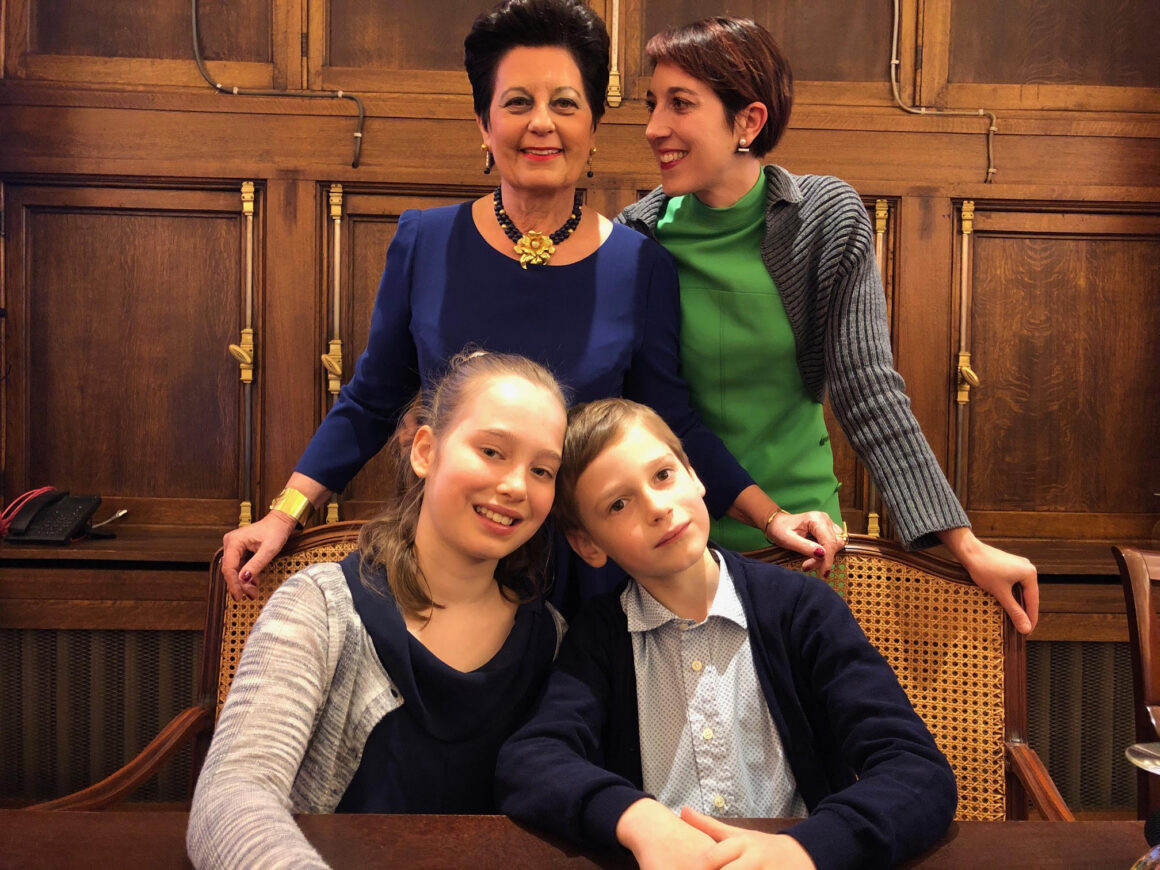
A Legacy Still in Motion
In 2025, Baroness Françoise Meunier serves as Vice President of the Belgian Royal Academy of Medicine, soon to be its President in 2027.
She has recently received the Paul Harris Award in Salamanca, honoring her decades of scientific and humanistic leadership.
She was awarded in 2015 the title of Doctor Honoris Causa by Queen’s University (Belfast) for her contribution to Science.
Her mission isn’t finished. It’s evolving, with the same force, clarity, and courage that have defined her entire life.

